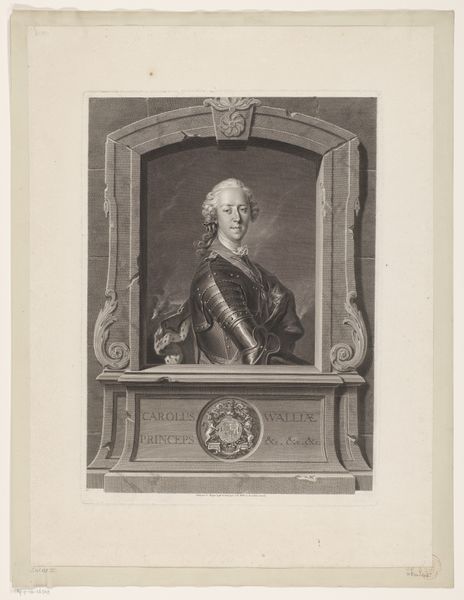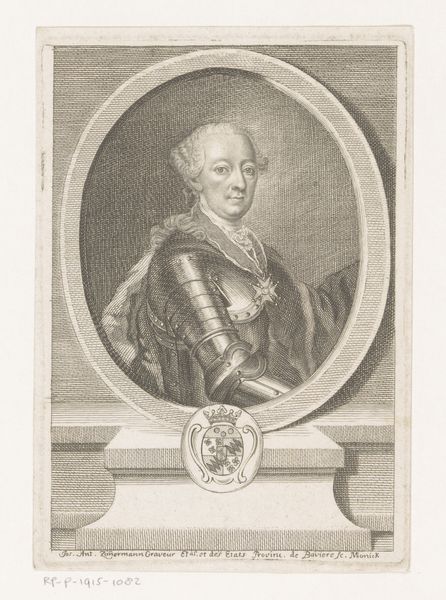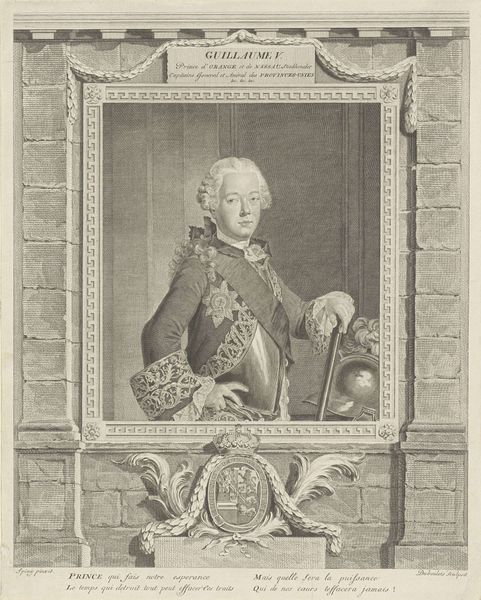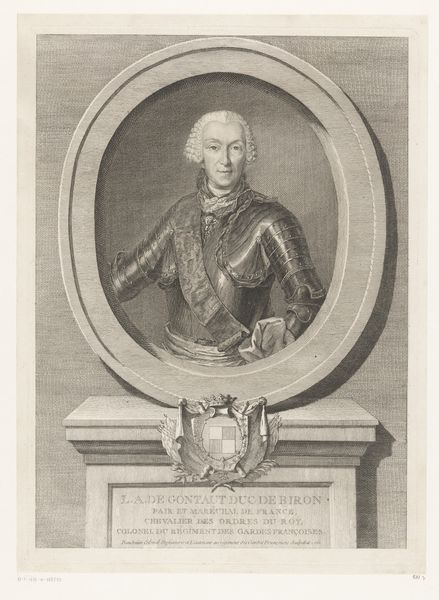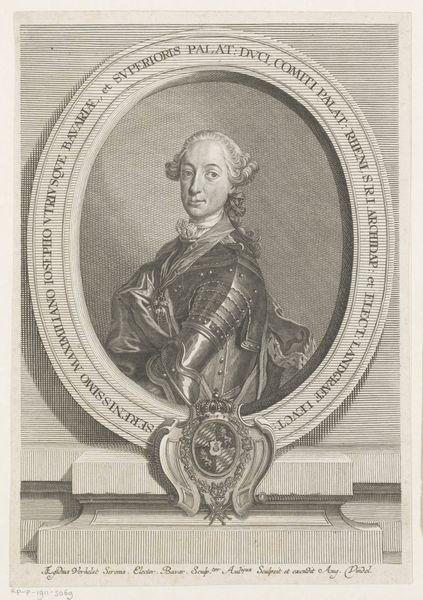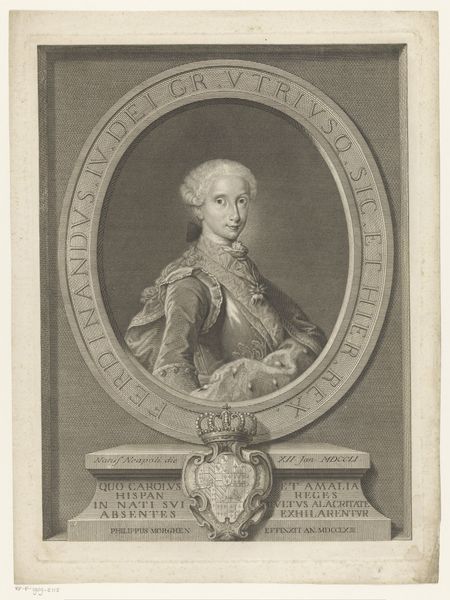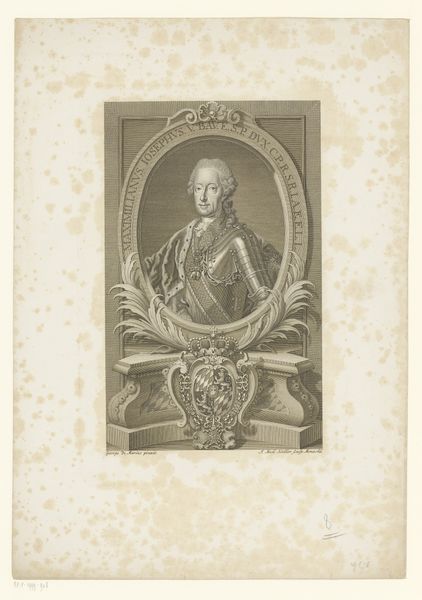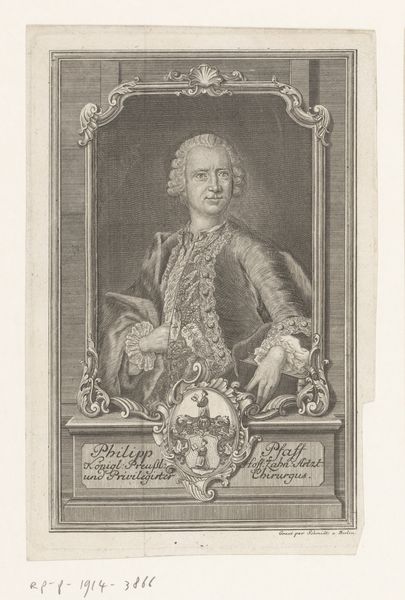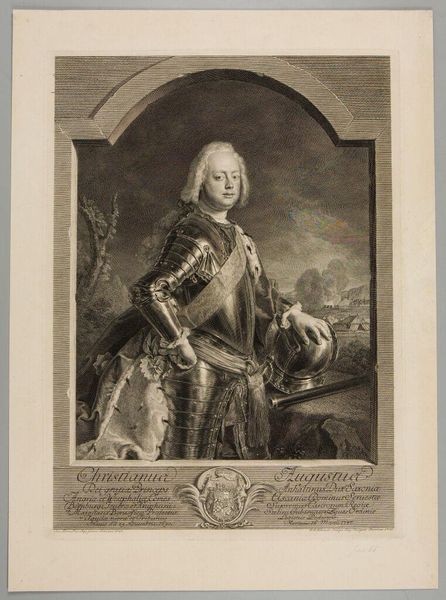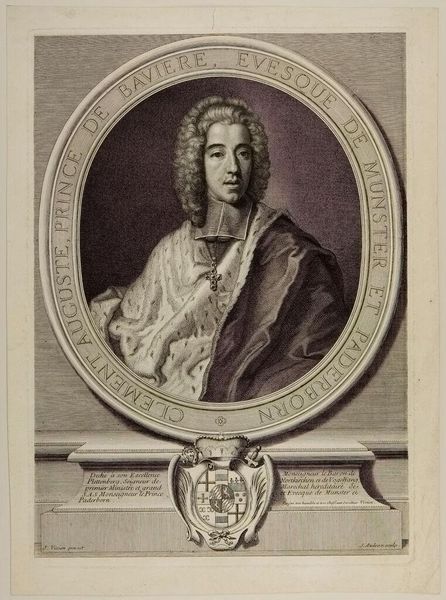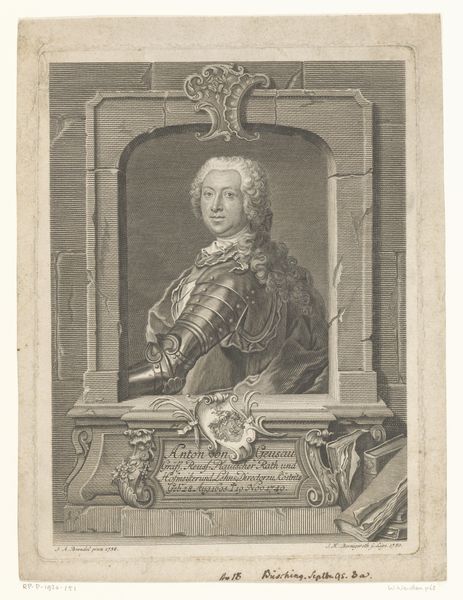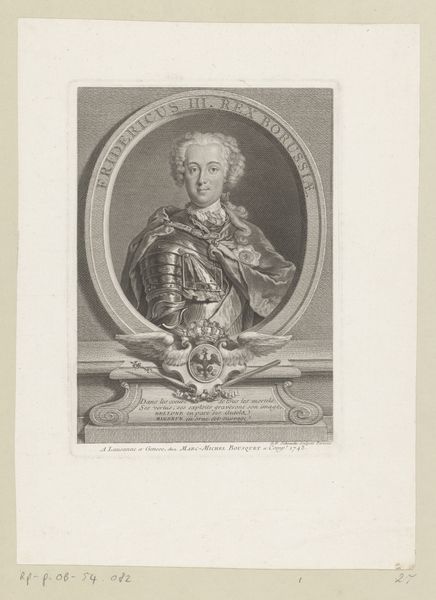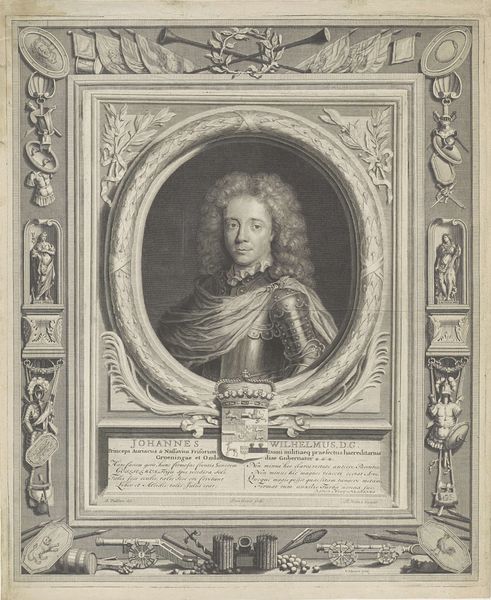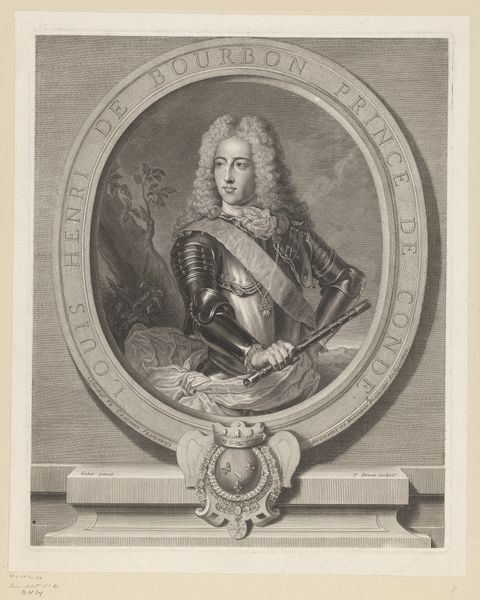
Dimensions: Image: 44.7 Ã 32 cm (17 5/8 Ã 12 5/8 in.) Plate: 46.3 Ã 32.8 cm (18 1/4 Ã 12 15/16 in.) Sheet: 56.7 Ã 42.4 cm (22 5/16 Ã 16 11/16 in.)
Copyright: CC0 1.0
Editor: Here we have Johann Georg Wille’s "Charles Edward Stuart, the Pretender," a striking print from the Harvard Art Museums. The texture looks so smooth. I'm curious, what details stand out to you in terms of production? Curator: I see the engraving as an object of labor and consumption. Consider the copper plate itself, mined and processed, then etched with incredible skill. How does the print's existence as a multiple alter its meaning, compared to a unique painting? Editor: That's a fascinating point. So, the availability changes its purpose? Curator: Precisely. It moves from a singular image to a commodity, subject to the whims of the market. And what about the paper? Its production, distribution, and ultimate disposal all contribute to the work's material history. Editor: I didn't think about paper and its context! This really makes you consider all the steps involved. Curator: Indeed. Thinking about the labor and materials gives us a different perspective.
Comments
No comments
Be the first to comment and join the conversation on the ultimate creative platform.
